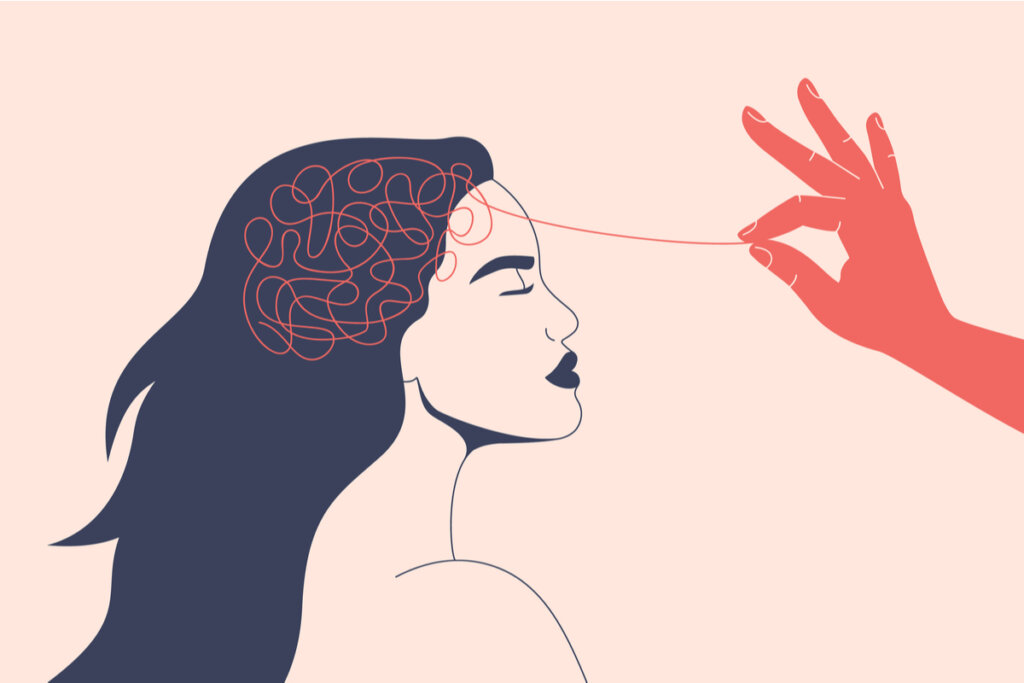The Peak-End Rule: A Curious Cognitive Bias


Written and verified by the psychologist Valeria Sabater
Your memory is playful, tricky, and even treacherous and you’re not responsible for all its various ins and outs. Moreover, your brain doesn’t keep all the information related to your experiences. It chooses to economize. But, it sometimes makes mistakes in trying to save the most significant information in the most truthful way possible.
You tend to judge certain experiences by the final feeling they provoke in you. For example, imagine you’re eating in a restaurant. It doesn’t matter if the first and second courses are pretty bland, but if the dessert is extraordinary, you’ll probably have a good memory overall of the quality of the food.
Something similar happens in relationship breakups. You might’ve had a disastrous coexistence but if, in the end, the way in which you decide to leave the relationship is respectful and mature, it’s likely that your memory will ‘improve’ on how your relationship really was. It also works the other way around. This demonstrates that the way you articulate your memories isn’t always completely correct. Furthermore, it can govern many of your future decisions.
You don’t judge events by complete experiences, but by small pieces in which your emotions were the protagonists. This is a type of cognitive bias. It caught the attention of two relevant figures in psychology: Barbara Fredrickson and Daniel Kahneman.
The peak-end rule is widely used by marketing companies. They know that transmitting positive emotions in the middle and at the end of a marketing message means we’re more likely to remember it.

The peak-end rule bias
Have you ever gone out to celebrate a special occasion with your partner and, at the end of the evening, had an argument that spoiled everything? That final incident makes you remember the whole day as uncomfortable, even though the rest of it was happy and harmonious. This is because your mind articulates its memories based on the emotional peaks that accompany certain experiences.
In 1993, Fredrickson and Kahneman conducted a study in which they revealed the way in which we evaluate our memories. They claimed that the duration of an event doesn’t matter. In fact, what matters is what we feel while the vital episode is unfolding. Furthermore, our emotions articulate not only our memories but also our future judgments.
This is often seen in a particular type of bias. The peak-end rule suggests that our memories label experiences based on two situations: their most intense moments and their resolutions. For example, childbirth. Undoubtedly, this is a painful experience. However, the greatest emotional intensity comes at the end when the mother has her baby. The rest is forgotten.
The most intense emotions remain, but not the whole experience
Your brain isn’t like a video camera monitoring an area for security purposes. You can’t record everything. Therefore, you keep the parts that have caused the greatest impact. Faced with the impossibility of saving every moment of life, your mind keeps those remnants that are soaked in the most intense emotions.
This saves space. On the other hand, it can also distort the quality of your memory. For instance, it might mean that, if you go to a badly organized concert but, at the end, they play your favorite song, you’ll think of the overall experience as positive. When, in reality, it wasn’t entirely satisfactory.
Giving more value to how an experience ends
The peak-end rule states that we value experiences based on our emotions that arise at the end. Daniel Kahneman explains that, in evolutionary terms, this bias acted as a survival mechanism. It’s how we valued whether something was a benefit or a threat.
For example, if our ancestors entered an area where there was food, but their social group was attacked by animals or other groups, they’d most likely not return to that place. On the other hand, if a cave was almost inaccessible, but offered them protection, they’d probably try to reach it again.
We need to be more aware that our minds are articulated by numerous cognitive biases. Our memories are never exact, but they have an almost innate tendency to interpret reality in order to save information.
Business strategies
Marketing companies are great experts in the mechanisms of cognitive biases. They use them to manipulate our buying tendencies. Indeed, the peak-end rule is a resource employed throughout the year in many sectors, such as fashion or technology.
It consists of raising the prices of certain products at a given moment so that, after a few days, they can be lowered (leaving them at the usual cost). This is common in Black Friday campaigns. The customer is left with only the final positive fact, the reduction in the cost of the article.

Be careful, your memory can deceive you
Our memories persistently deceive us. Many of us reminisce about how everything was better in the good old days. However, if we were able to analyze in detail what we actually experienced in our youth, we’d undoubtedly come to question these sentiments. Because our minds have the innate tendency to stick with only the good. It’s how we find the strength to carry on.
The danger of the peak-end rule is that it can distort our perception of past events and govern future decisions. For instance, if you saw a dentist last week who was nice but who hurt you while carrying out a procedure, you might decide never to set foot in a dental clinic again, with all that this implies.
Or, if you go to a specific class and the teacher’s good, but you fail the first exam, this bias may make you choose not to return. That’s because you’re only focusing on the adverse end result. You forget that the teacher and the class were great. On occasions like this, when you allow yourself to be carried away by only the emotional peaks in your experience, it’s best to stop and reflect.
Finally, your mind is dominated by multiple biases and emotions often cloud your judgment and the opportunity to view experiences as a whole. Therefore, it’s worth trying to apply more analytical and less impulsive mental approaches. Understanding how your brain works will give you greater power over your decisions and the reality that surrounds you.
Your memory is playful, tricky, and even treacherous and you’re not responsible for all its various ins and outs. Moreover, your brain doesn’t keep all the information related to your experiences. It chooses to economize. But, it sometimes makes mistakes in trying to save the most significant information in the most truthful way possible.
You tend to judge certain experiences by the final feeling they provoke in you. For example, imagine you’re eating in a restaurant. It doesn’t matter if the first and second courses are pretty bland, but if the dessert is extraordinary, you’ll probably have a good memory overall of the quality of the food.
Something similar happens in relationship breakups. You might’ve had a disastrous coexistence but if, in the end, the way in which you decide to leave the relationship is respectful and mature, it’s likely that your memory will ‘improve’ on how your relationship really was. It also works the other way around. This demonstrates that the way you articulate your memories isn’t always completely correct. Furthermore, it can govern many of your future decisions.
You don’t judge events by complete experiences, but by small pieces in which your emotions were the protagonists. This is a type of cognitive bias. It caught the attention of two relevant figures in psychology: Barbara Fredrickson and Daniel Kahneman.
The peak-end rule is widely used by marketing companies. They know that transmitting positive emotions in the middle and at the end of a marketing message means we’re more likely to remember it.

The peak-end rule bias
Have you ever gone out to celebrate a special occasion with your partner and, at the end of the evening, had an argument that spoiled everything? That final incident makes you remember the whole day as uncomfortable, even though the rest of it was happy and harmonious. This is because your mind articulates its memories based on the emotional peaks that accompany certain experiences.
In 1993, Fredrickson and Kahneman conducted a study in which they revealed the way in which we evaluate our memories. They claimed that the duration of an event doesn’t matter. In fact, what matters is what we feel while the vital episode is unfolding. Furthermore, our emotions articulate not only our memories but also our future judgments.
This is often seen in a particular type of bias. The peak-end rule suggests that our memories label experiences based on two situations: their most intense moments and their resolutions. For example, childbirth. Undoubtedly, this is a painful experience. However, the greatest emotional intensity comes at the end when the mother has her baby. The rest is forgotten.
The most intense emotions remain, but not the whole experience
Your brain isn’t like a video camera monitoring an area for security purposes. You can’t record everything. Therefore, you keep the parts that have caused the greatest impact. Faced with the impossibility of saving every moment of life, your mind keeps those remnants that are soaked in the most intense emotions.
This saves space. On the other hand, it can also distort the quality of your memory. For instance, it might mean that, if you go to a badly organized concert but, at the end, they play your favorite song, you’ll think of the overall experience as positive. When, in reality, it wasn’t entirely satisfactory.
Giving more value to how an experience ends
The peak-end rule states that we value experiences based on our emotions that arise at the end. Daniel Kahneman explains that, in evolutionary terms, this bias acted as a survival mechanism. It’s how we valued whether something was a benefit or a threat.
For example, if our ancestors entered an area where there was food, but their social group was attacked by animals or other groups, they’d most likely not return to that place. On the other hand, if a cave was almost inaccessible, but offered them protection, they’d probably try to reach it again.
We need to be more aware that our minds are articulated by numerous cognitive biases. Our memories are never exact, but they have an almost innate tendency to interpret reality in order to save information.
Business strategies
Marketing companies are great experts in the mechanisms of cognitive biases. They use them to manipulate our buying tendencies. Indeed, the peak-end rule is a resource employed throughout the year in many sectors, such as fashion or technology.
It consists of raising the prices of certain products at a given moment so that, after a few days, they can be lowered (leaving them at the usual cost). This is common in Black Friday campaigns. The customer is left with only the final positive fact, the reduction in the cost of the article.

Be careful, your memory can deceive you
Our memories persistently deceive us. Many of us reminisce about how everything was better in the good old days. However, if we were able to analyze in detail what we actually experienced in our youth, we’d undoubtedly come to question these sentiments. Because our minds have the innate tendency to stick with only the good. It’s how we find the strength to carry on.
The danger of the peak-end rule is that it can distort our perception of past events and govern future decisions. For instance, if you saw a dentist last week who was nice but who hurt you while carrying out a procedure, you might decide never to set foot in a dental clinic again, with all that this implies.
Or, if you go to a specific class and the teacher’s good, but you fail the first exam, this bias may make you choose not to return. That’s because you’re only focusing on the adverse end result. You forget that the teacher and the class were great. On occasions like this, when you allow yourself to be carried away by only the emotional peaks in your experience, it’s best to stop and reflect.
Finally, your mind is dominated by multiple biases and emotions often cloud your judgment and the opportunity to view experiences as a whole. Therefore, it’s worth trying to apply more analytical and less impulsive mental approaches. Understanding how your brain works will give you greater power over your decisions and the reality that surrounds you.
All cited sources were thoroughly reviewed by our team to ensure their quality, reliability, currency, and validity. The bibliography of this article was considered reliable and of academic or scientific accuracy.
- Dutta, Satrajit; Kanungo, Rabindra N.; Freibergs, Vaira (1972). “Retention of affective material: Effects of intensity of affect on retrieval”. Journal of Personality and Social Psychology. 23 (1): 64–80. doi:10.1037/h0032790
- Fredrickson, B. L., & Kahneman, D. (1993). Duration neglect in retrospective evaluations of affective episodes. Journal of Personality and Social Psychology, 65(1), 45–55. https://doi.org/10.1037/0022-3514.65.1.45
- Kahneman, Daniel (2000). “Evaluation by moments, past and future”. In Kahneman, Daniel; Tversky, Amos (eds.). Choices, Values and Frames. Cambridge University Press. p. 693
- Redelmeier, Donald A; Kahneman, Daniel (1996). “Patients’ memories of painful medical treatments: real-time and retrospective evaluations of two minimally invasive procedures”. Pain. 66 (1): 3–8. doi:10.1016/0304-3959(96)02994-6
This text is provided for informational purposes only and does not replace consultation with a professional. If in doubt, consult your specialist.







